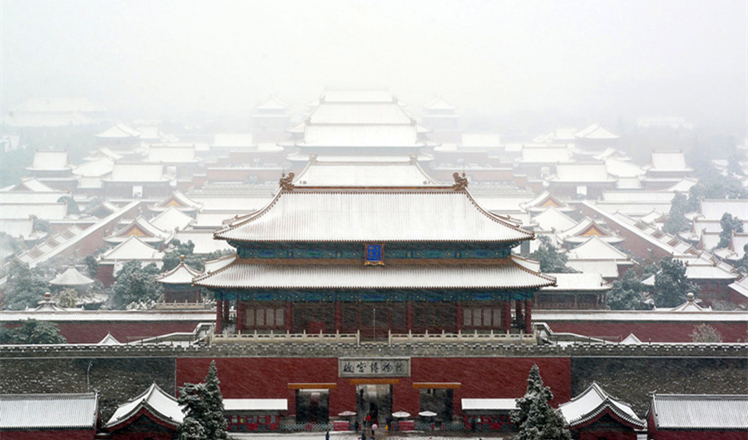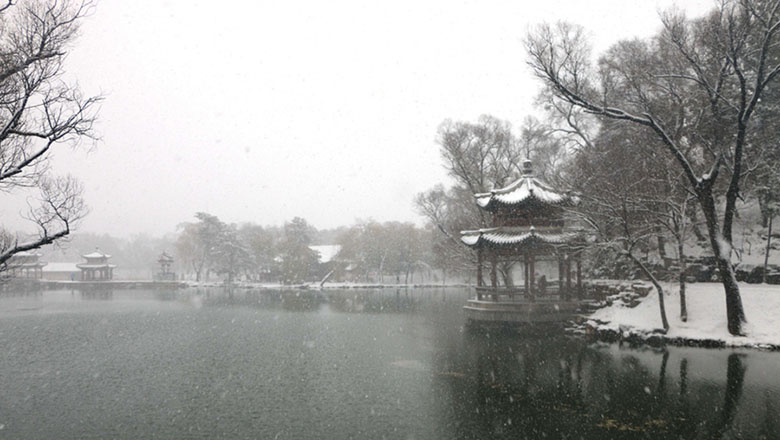Going against the flow?
Updated: 2015-11-24 08:14
By Wang Yanfei(China Daily)
|
||||||||
While the world's largest water-diversion project is bringing relief to China's dry northern regions, some residents in the south say they are paying a high price, but reaping few benefits. Wang Yanfei reports from Xichuan county, Henan province.
Nearly a year has passed since China's arid northern regions began receiving water channeled from the south via a network of pipes and aqueducts stretching more than 1,400 kilometers.
The three-phrase South-North Water Diversion Project, the largest water-transfer undertaking in the world, became operational in December last year, and is designed "to mitigate the water crisis and promote economic development in the north", according to the official website. The water, from the Danjiangkou Reservoir, which straddles the provinces of Hubei and Henan, is carried to the Beijing-Tianjin-Hebei cluster, a pivotal area for economic development in the north via the central route.
|
An aerial photo shows the main channel for the central route of the South-North Water Diversion Project in Dengzhou, Henan province. The project is the largest water-transfer undertaking in the world. Xinhua |
|
Farmers relocated to a village in Danjiangkou city, Hubei province, because of the South-North Water Diversion Project, harvest mushrooms in June. Hao Tongqian / Xinhua |
In 2013, the eastern route, which mostly follows existing channels, began carrying water to the provinces of Jiangsu and Shandong. Work on the central and eastern routes is ongoing, but the western route, designed to alleviate water shortages in landlocked Qinghai province, remains at the planning stage, and the extensive project "may take 40 to 50 years to complete", the website said.
In September, Beijing's groundwater storage capacity rose by 80 million cubic meters, the first rise in 16 years. "That's the result of the water diversion project," said Dai Yuhua, director of water resources at the Beijing Municipal Water Management Bureau.
By the end of October, more than 2 billion cubic meters of water had been delivered via the central route, and an estimated 3.7 million people had benefited, according to the route's management bureau. Now, 70 to 80 percent of the drinking, industrial and agricultural water used in Beijing and the nearby port city of Tianjin is piped from the reservoir, Xinhua News Agency reported.
Ni Guangheng, director of the Institute of Hydrology and Water Resources at Tsinghua University, who has visited a number of locations along the route, said the project was a sensible move.
"The demand for water has been rising for a very long time in the north, and the project has greatly eased the problem, judging by the statistics and the recent rise in the level of groundwater. But, the effect can't just be calculated simply by looking at the amount of money invested and revenues earned. As far as I am concerned, if it works well, then it's a good thing to do," he said.
"From the sole perspective of solving the water crisis, it is indeed a valuable project. Far more people have benefited than have been disadvantaged, and it's likely that more profit will generated by a hydroelectric project that will be put into use in the future," he added.
The project was inspired by a famous comment made by Mao Zedong in 1952, when China's then-leader noted that the south had plenty of water and joked that it would be wonderful if the north could "borrow" some.
However, despite its auspicious origins, the project was only approved by the State Council in 2002. The initial budget for the eastern and central routes was 124 billion yuan ($19 billion), but the real cost has almost doubled from the initial projections.

"We encountered a lot more problems than we had imagined," Wang Mengshu, a member of the Chinese Academy of Engineering and also a professor at Beijing Jiaotong University, told the 21st Century Business Herald. "The aqueducts, where the water is completely exposed to the air, cost more than expected, and more bridges needed to be built because the water channels cross numerous rivers and creeks on their way north."
Relocation
However, while the north has undoubtedly benefited from the project, construction costs have soared and southern residents close to the reservoir are paying a high price.
In 2008, to ensure that the water would flow north by gravity feed, the level of the Danjiangkou Reservoir was raised by 13 meters, to 170 meters from 157, which resulted in the relocation of about 345,000 people in Henan and Hubei.
Han Guilian, 50, was moved to the Hualiba migrant village in Xichuan county, Henan, about 20 kilometers from her ancestral home. "The distance isn't that great, and I've often ridden back to my hometown on my motorbike. There's nothing left, though. Just a vast expanse of water," she said.
Although she said her new life is "not bad", she is still sad. "I can no longer sweep my parents' grave. I worry that they will blame me for not being able to visit them," she said.
Han has more down-to-earth concerns, too. Even though her three-story house looks quite new from the outside, "it leaks when it rains", she said, wearing a bitter smile. The house was devoid of decorations, and there was very little furniture, apart from a television set, an old sofa and several small wooden benches for visitors.
Moreover, there's "not too much to do", so Han spends most of her time chatting with her neighbors and visitors.
Local officials promised to give her 1,200 square meters of farmland, but in the end she was only allocated 800 sq m. "Speaking frankly, the land here is poor," she said. "We used to grow peanuts and wheat, but I'm not expecting the harvest here to be good, so I have given up. We rely on the money brought back by my son and daughter-in-law from Zhengzhou city," she said. "Nearly half the villagers, especially the younger generation, have moved away to earn more money. You can't really make a living here by growing crops."
Her family's annual income used to be just 6,500 yuan, and although it has now risen slightly, the amount "depends on how much the factories pay my son and daughter-in-law every month. The number of hours they work varies from week to week, so it's not a very stable income".
Fresh opportunities

Zhao Quanhong, head of the Hualiba village immigration office, acknowledged that life has been tough for many residents, but insisted that the relocation has resulted in many opportunities.
"I don't want the villagers to attribute all their difficulties to the water diversion project. I understand their feelings because I am one of them, but even before the project started, many things needed to be improved - Xichuan is one of 12 national-level impoverished counties. However, from another point of view, the project offers a chance to create something new from a fresh start," he said.
"We are trying to improve the residents' lives by creating local employment opportunities, so people don't have to move far away," he said. "This year, we have held 20 employment training sessions for vill-agers, and we are trying to help them make a living from something other than growing crops. But it will take time (to see the real benefits)."
Tsinghua University's Ni said the full effects of the project will not become apparent for some years.
"Providing livelihoods for relocated residents is still a problem, and the future allocation of water resources is another concern I can foresee.
"We want to ease the water shortage crisis in the north, but transporting water is only a partial solution because northern cities have large populations. This is not a finished project.
"However, it will probably be a long battle. Compared with preserving the water quality along the open channels, I feel that improving the lives of the migrants will be a far more difficult task."
Contact the writer at wangyanfei@chinadaily.com.cn

(China Daily 11/24/2015 page6)

 Premier Li meets old friends at specialty shop in Malacca
Premier Li meets old friends at specialty shop in Malacca
 Top 10 must-see debuts of 2015 Guangzhou Auto Show
Top 10 must-see debuts of 2015 Guangzhou Auto Show
 Snowfall brings beauty in Beijing winter
Snowfall brings beauty in Beijing winter
 The world in photos: Nov 16 - 22
The world in photos: Nov 16 - 22
 List of winners at the 2015 American Music Awards
List of winners at the 2015 American Music Awards
 Indian PM praises Premier Li's philosophy on economy
Indian PM praises Premier Li's philosophy on economy
 Snow hits North China as temperature drops
Snow hits North China as temperature drops
 'Burn the Floor' thrills its Beijing audience
'Burn the Floor' thrills its Beijing audience
Most Viewed
Editor's Picks

|

|

|

|

|

|
Today's Top News
Chinese president arrives in Turkey for G20 summit
Islamic State claims responsibility for Paris attacks
Obama, Netanyahu at White House seek to mend US-Israel ties
China, not Canada, is top US trade partner
Tu first Chinese to win Nobel Prize in Medicine
Huntsman says Sino-US relationship needs common goals
Xi pledges $2 billion to help developing countries
Young people from US look forward to Xi's state visit: Survey
US Weekly

|

|










